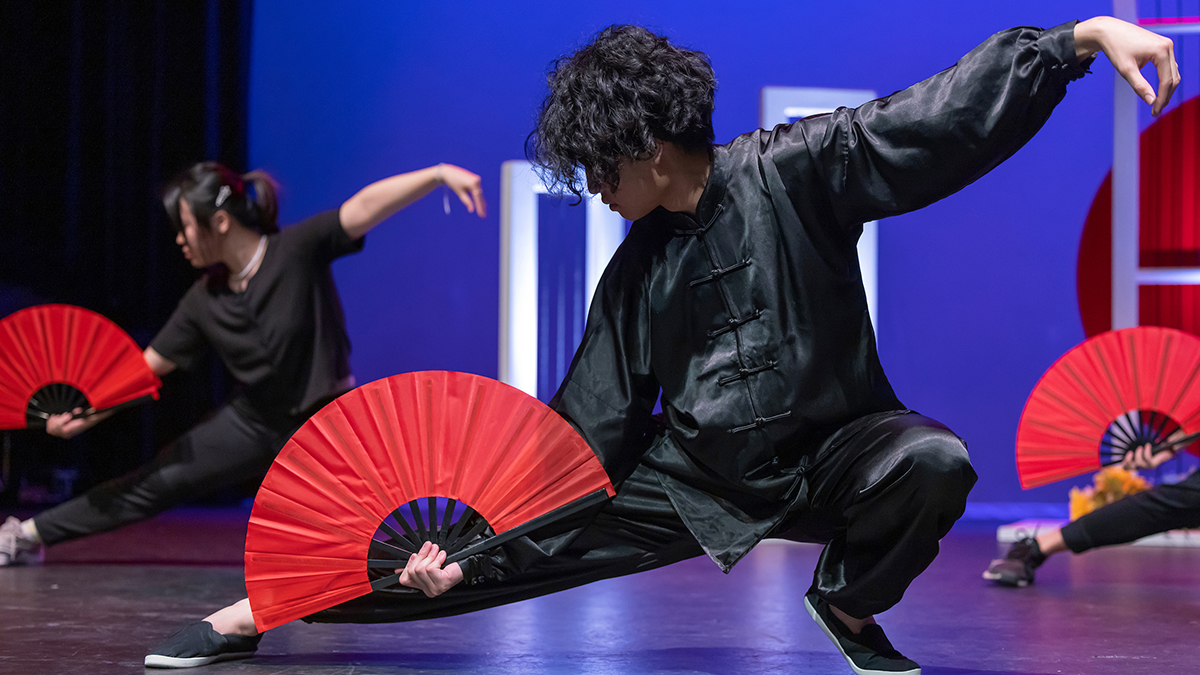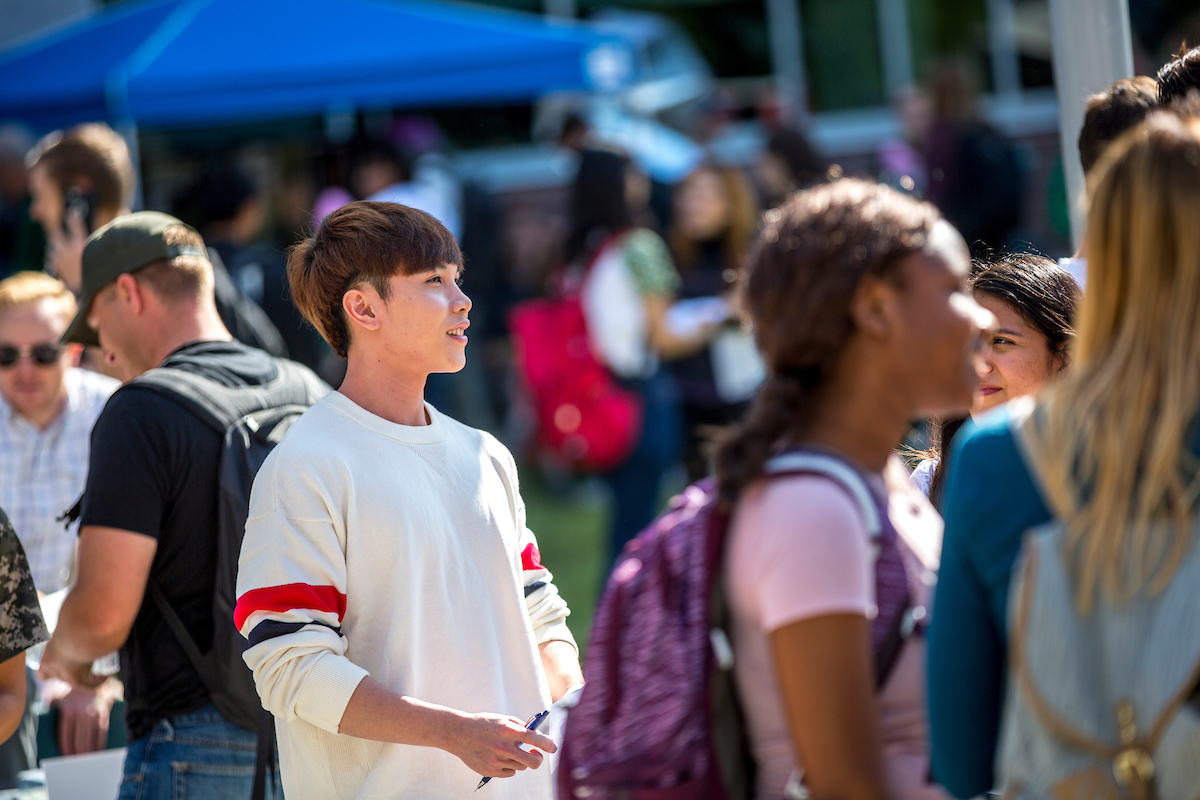As we celebrate AAPI Heritage Month at Utah Valley University (UVU), we strive to create space for Asian Americans and Pacific Islanders as separate cultures and identities while recognizing the history that led to this joint observance.

In 1977, the House of Representatives declared that the first 10 days of May would be Asian-Pacific Heritage Week. This is due to two key moments in Asian American History: When the first Japanese immigrant arrived in the U.S. on May 7, 1843, and when the transcontinental railroad was completed on May 10, 1869, largely by Chinese laborers. The 10-day observance was expanded into Asian American and Pacific Islander (AAPI) Heritage Month in May 1992.
Pacific Islanders and Asian Americans are celebrated together because, at the time, Pacific Islanders were considered to be Asian. The U.S. government used the term “Asian American” as a racial category for both groups until 1997 when the White House Office of Management and Budget created a distinction between the two for institutional purposes. As we celebrate AAPI Heritage Month at Utah Valley University (UVU), we strive to create space for Asian Americans and Pacific Islanders as separate cultures and identities while recognizing the history that led to this joint observance.
The Federal Asian Pacific American Council (FAPAC) sets a theme for AAPI Heritage Month every year, and the theme for 2023 is “Advancing Leaders Through Opportunity.” At UVU, we believe students need opportunities to develop academically, professionally, and individually to become innovative leaders. Our Asian American students, staff, and faculty are an integral part of our UVU community, and we are honored to celebrate their achievements and culture this AAPI Heritage Month.

The Asian Initiative at UVU celebrates and promotes Asian American and Asian identity and culture through education, awareness, and appreciation. Through all of our programming, we seek to support underserved communities in higher education and improve retention and graduation for Asian American and Asian students.
Just as Pacific Islanders and Asian Americans have separate cultures and identities, we recognize that Asian American history is not a monolith and includes the experiences of various Asian communities. We have compiled a broad history of Asian Americans in the U.S., but we encourage you to learn more about individual Asian identities and cultures this May.
1765: First Filipino American settlement in the U.S.
Saint-Malo was a small fishing village in Louisiana that may have been established as early as 1763 or 1765. The settlement was home to Filipino Americans as well as fugitive slaves. Saint-Malo was the first Filipino American settlement and may have also been the first Asian American settlement in the U.S.
1869: First transcontinental railroad completed
The first transcontinental railroad in the U.S. was completed on May 10, 1869, and is one of the reasons AAPI Heritage Month is celebrated in May. The Central Pacific Railroad Company of California (CPRR) preferred to hire local Chinese emigrants as manual laborers; by 1867, 80-90% of the CPRR workforce were Chinese.
1907: Bellingham Riots
Indian immigrants often settled in the Pacific Northwest in the early 20th century to work in the lumber industry. Many Indian immigrants also came to Washington to escape racist attacks in Canada. On September 4, 1907, a mob of white men attacked the homes of these Indian workers in Bellingham, Washington.
1952: Immigration and Nationality Act of 1952
The Immigration and Nationality Act of 1952 lifted many immigration restrictions for Asian countries. Several anti-Asian exclusion laws were nullified in the act, including the Chinese Exclusion Act of 1882 and the Immigration Act of 1924.
1982: Murder of Vincent Chin
On June 19, 1982, Chinese American Vincent Chin was fatally beaten at his bachelor party in Detroit. The perpetrators only received three years of probation, and the outcry to this sentence created a national movement advocating for Asian Americans’ civil rights.
2020: Stop AAPI Hate Coalition founded
At the beginning of the COVID-19 pandemic, racist attacks against Asian Americans and Pacific Islanders increased. In response, the nonprofit Stop AAPI Hate was founded by the Asian Pacific Policy and Planning Council (A3PCON), Chinese for Affirmative Action (CAA), and the Asian American Studies department at San Francisco State University. The coalition tracks and responds to hate crimes and incidents against Asian Americans and Pacific Islanders across the U.S.